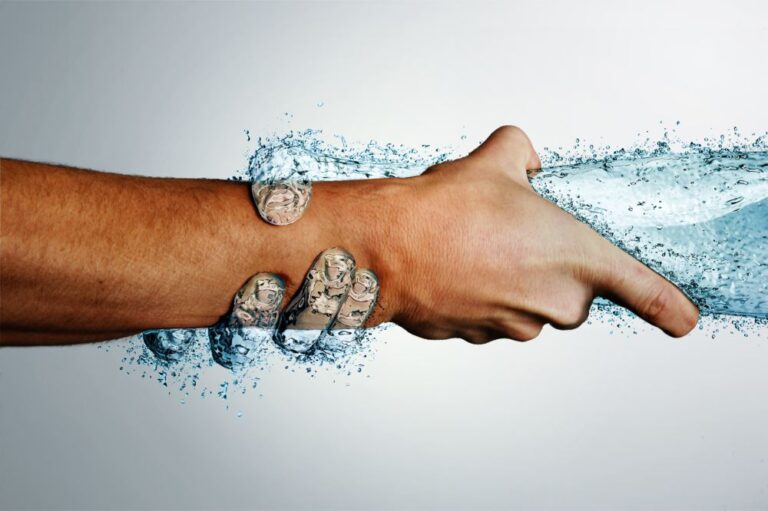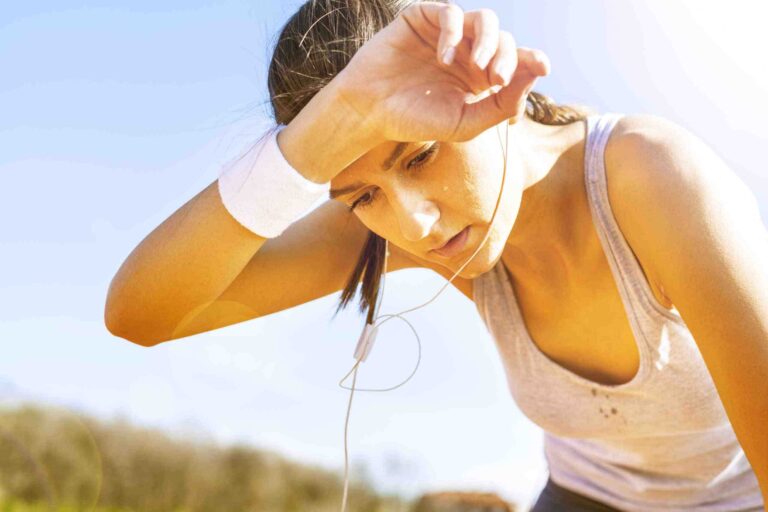Although we are all relieved that the harsh winter is behind us, the summer and its soaring heat have their own set of difficulties. Consider the likelihood of getting bitten by insects, getting sunburned, and, of course, dehydrating. A person becomes dehydrated when they lose more fluid than they consume, which impairs their body’s capacity to perform its normal activities. It’s frequently brought on by things like overexposure to the sun without enough fluid replenishment, having a fever, vomiting, or persistent diarrhea.
Over 75% of Americans, or roughly 246 million people, have chronic dehydration, according to studies. Early detection of dehydration symptoms and signs is essential for effective dehydration therapy and can help avoid a more acute, life-threatening situation.

THE MOST TYPICAL SIGNS OF DEHYDRATION
Dehydration symptoms should always be watched out for, but the summer months are especially crucial because of the increased heat and humidity. Among the primary indications of mild to moderate dehydration are :
- Dry mouth
- Headache
- Fatigue and confusion:- Dehydration may be a factor in your inability to focus or clearly organize your ideas. According to studies, people who get less sleep tend to be more dehydrated, while those who drink enough water tend to sleep for longer periods of time.
- Fever and Chills:- The inability of your body to maintain a normal body temperature when you are dehydrated can result in hyperthermia and fever-like symptoms like chills.
- Lightheadedness and Dizziness:- Lack of fluid intake might have a detrimental impact on how well your brain functions. For instance, you may be very dehydrated if you are feeling lightheaded, dizzy, or as though you could pass out.
- Rapid Heartbeat and Breathing:- Exercise naturally causes an elevated heart rate and fast breathing. However, if you encounter these symptoms and they persist after you’ve cooled down or if you haven’t been exercising, it may be an indication of severe dehydration.
- Reduced urine production or dark urine:- Examining the color of your urine is a quick and simple test to determine whether you’re dehydrated. Normal urine should have a light lemon-yellow color. An indication of moderate to severe dehydration could be darker-colored urine that resembles apple juice.
You’re probably quite dehydrated if you’re not urinating at all. This demands emergency medical care.
- Unconsciousness:- Low blood pressure or lightheadedness can cause dehydration-related unconsciousness. This may signal serious fluid loss if it is present with other indicators of dehydration.
- Dry skin:- Try this exercise: Try pinching your hand’s top skin to observe what occurs. You may be mild to moderately dehydrated if the urine moves back slowly. A severe case of dehydration is indicated if the skin appears to the tent (i.e., appears to stick together).
WHEN TO DIAL 911?
Dehydration can escalate into a medical emergency if ignored. If you or someone around is showing signs of severe dehydration, call 911 or go to the closest emergency room. These signs may include :
- Skin that has shrunk
- Sunken-looking eyes or cheeks in a bloody or black stool
- Reduced blood pressure
- A lack of sweat
- Rapid breathing or heartbeat
- Confusion or fuzziness

OPTIONS FOR TREATING DEHYDRATION
The good news is that many minor episodes of dehydration may be treated with a lot of water and some indoor relaxation. It can also be helpful to consume an over-the-counter oral rehydration product, particularly after getting sick. Additionally, it’s crucial to stay away from beverages that can exacerbate dehydration, such as :
- Sugary fruit beverages
- Including coffee and other caffeinated drinks
- Alcohol
- Soda
Be sure to visit a same-day medical provider right away for essential care if dehydration does not improve with at-home remedies. Many urgent care facilities provide IV hydration therapy, a procedure that involves injecting a hydrating salt solution straight into the bloodstream to effectively replenish fluid levels and alleviate dehydration symptoms.
WAYS TO AVOID DEHYDRATION
Being outside is crucial for maintaining good health and having a good time during summer. Here are some additional straightforward suggestions to keep you and your loved ones hydrated this season :
- When you feel thirsty, don’t hesitate to obtain a drink of water; act quickly!
- Enjoy foods like lettuce, berries, melon, cucumber, watermelon, and grapes that are high in water content.
- Every morning, right after you awaken (remember, it’s been a while since your last sip! ), drink a glass of water.
- Wear light-colored, loose-fitting clothing that will allow your skin to breathe when the weather is really hot.
By following simple daily steps you can easily avoid dehydration. For more details call (469) 545-9983 to speak with our physician at Specialty Care Clinics.
